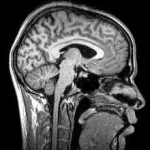
I’m more than a little skeptical whenever I hear someone claim that their facilitation process or coaching protocol or innovation model is based on how our brains work. (As though they know?)
The latest brain research fascinates me and we are certainly discovering many important things about what’s going on inside our heads. But exactly how does the brain work? Despite significant progress, we just don’t know, and we certainly don’t understand it well enough to copy it. The best we have are some good insights, some useful approximations and many intriguing theories. However, we do know that some of those theories about our brains are remarkably useful. There are a number of assumptions and beliefs we can adopt that have very powerful practical benefits. We may not fully understand why some approach is effective, but we know it works.
For example, after a century of measuring and studying IQ, we still don’t have a clear understanding of exactly what intelligence is. There’s still debate about whether intelligence is innate or developmental, whether we have one or multiple intelligences, and how to best measure whatever it is (or they are). But decades of research in educational psychology has found that students perform better when they think their intelligence can be developed, rather than something they were endowed with at birth. The logic of this is clear: believing that one cannot change one’s intelligence provides little incentive to try. Whereas believing that one can become smarter by working at it is a powerful reason to do so. It works.
More than 50 years of creativity research and practice demonstrates that certain working hypotheses have the power to dramatically improve the creativity of individuals and teams. When we assume that there are no bad ideas and consciously suspend judgment, we’re able to generate far more creative options. We know that finding diverse kinds of stimulation and seeking to connect disparate concepts often prompt fresh insights and creative breakthroughs. These and other working hypotheses are part of what we call brainstorming or creative problem solving. We still don’t know exactly why these strategies succeed. We don’t really understand what’s happening inside the brain as a result. But we know these are some of the most reliable ways to spark our creativity. They work.
So while the brain’s biological and cognitive functions are still unclear; we do understand the importance of mindset—that collection of theories or mental models we hold about how the world works. In our research at Innovator Mindset we’re measuring these mental models and also the larger patterns or paradigms that these mental models combine to create. We know what type of mindset tends to resist innovation and what type promotes it. We can identify these different mindsets, distinguish between them and measure their relative strength. But what’s most encouraging is that we’re able to identify the specific mental shifts that people (and organizations) can make to enhance their capacity to innovate. We can provide specific cognitive feedback that identifies and addresses any gaps that may exist. It works.
We don’t yet understand the inner workings of our brains well enough to prescribe the design of innovation processes and techniques. But we do understand what attitudes, assumptions and beliefs are productive and counterproductive. And that may be just as useful. What are your theories about your own mind? Don’t worry about whether they’re true or not. We don’t know anyway. Instead, ask yourself: Are they useful? Do they work? What assumptions can I make that will enable me to be more innovative? What will make me become more effective? What matters is what works.
Our mindset has a way of becoming self-fulfilling. We have good reason to be curious about how our heads work, but what seems to matter even more is how we think our heads work.
Get the new Special Report, Innovation Essentials: The Four Greatest Ways We stop Ourselves…In Business and in Life. Download a free copy at: http://innovatormindset.com/specialreport.htm
Image Credit: Wikipedia

Dennis, for many things, sticking with tried and true is valuable. Yet there are some incredible insights coming out of neuroscience and its application to decisionmaking, resliency, leading change and creating effective relationships.
So to be skeptical of all neuroscience might be a bit of a baby/bathwater move. What are the areas of neuroscience that are raising skepticism in this area?
Hi Greg,
You misunderstand me. I’m an avid enthusiast of neuroscience I follow it rather closely and draw on it frequently. I think it’s tremendously enlightening. My skepticism is aimed at those who exaggerate its findings as a marketing strategy…or make huge leaps based on rather narrow discoveries. I’m not at all a critic of the science. I’m a skeptic of those who misuse and misintrepret the science.
I don’t consider the work around Mindset to be “tried and true’ at all. I think it’s on the leading edge of current research and practice. We’re just beginning to tap its potential.